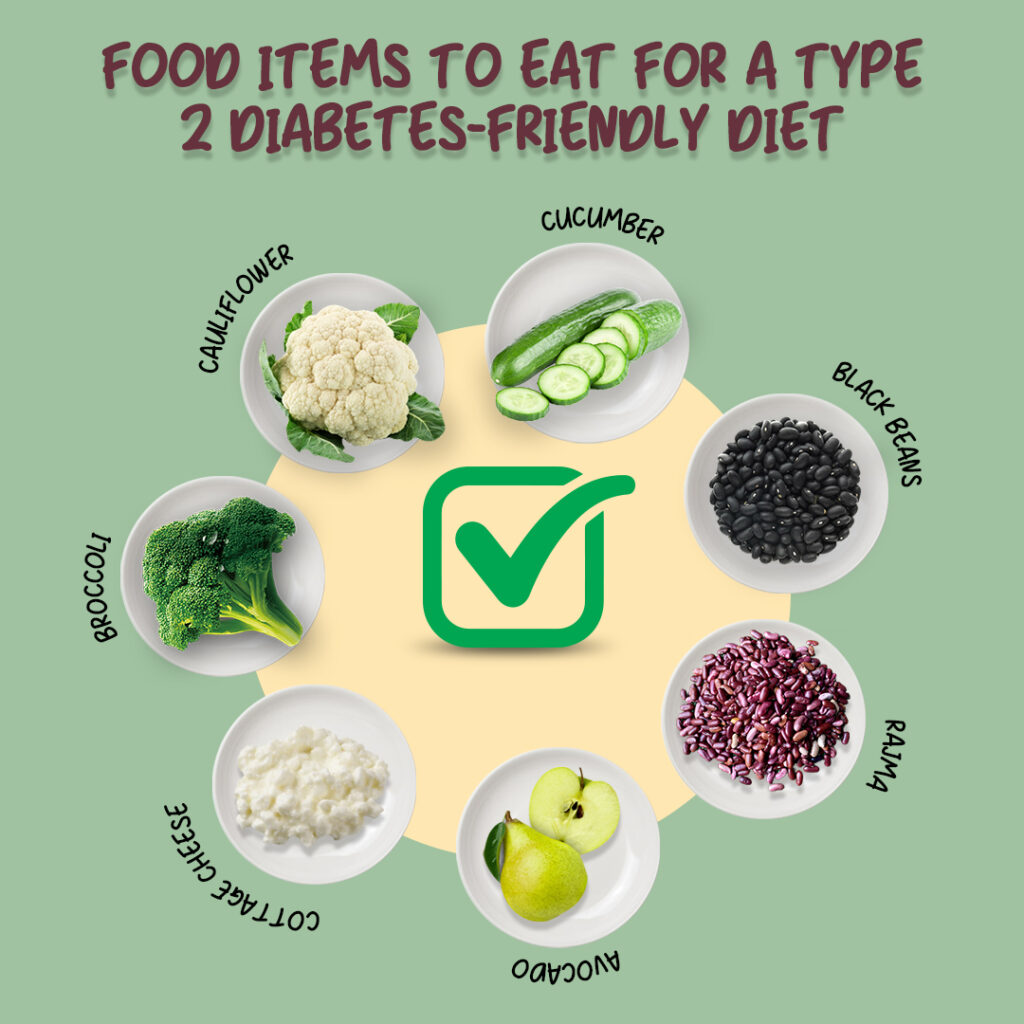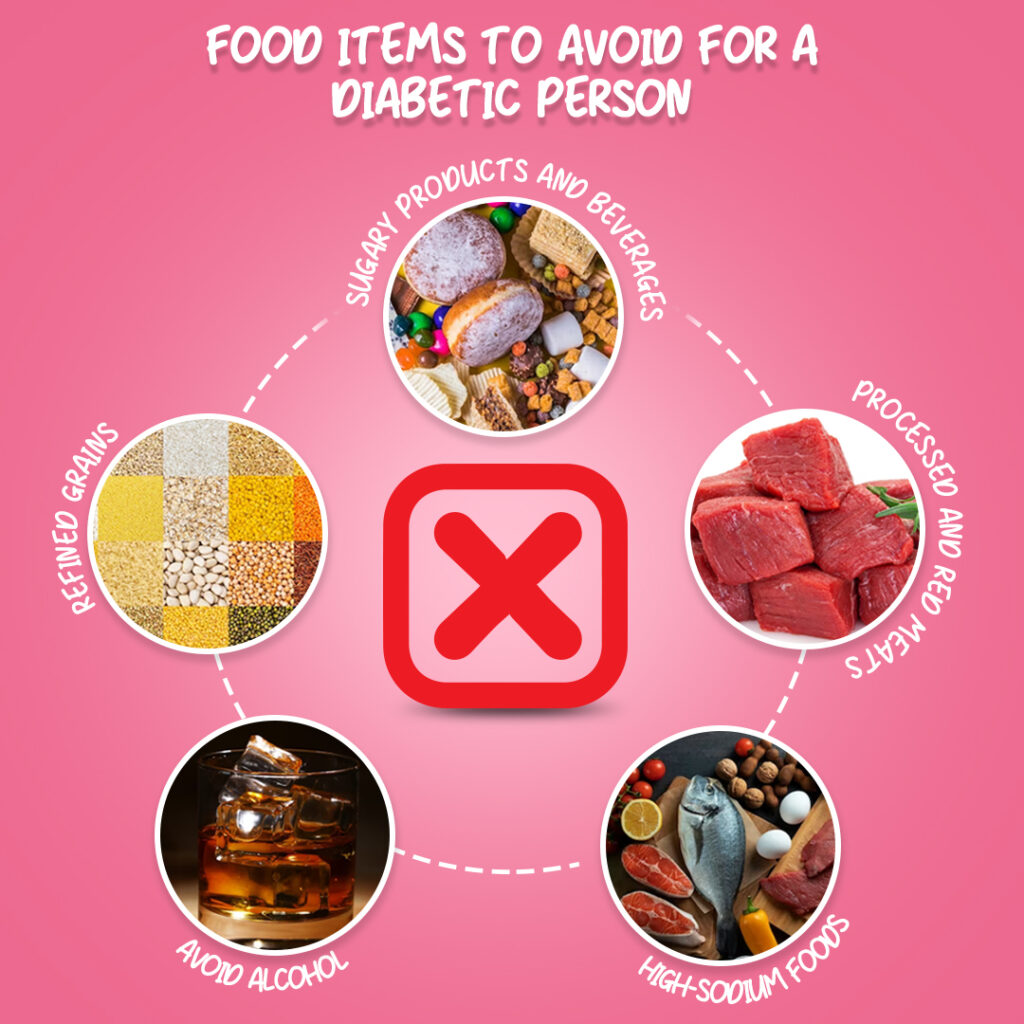Type 2 diabetes is one of the most common diseases prevailing in India, with around 77 million people suffering from this disease. And although genetics do play a role in determining your probability of getting this disease, a lot has to do with poor lifestyle choices and eating habits.
This is where a balanced diet comes into play, and although this disease is irreversible, a balanced diet can help you manage type 2 diabetes symptoms easily.
Thus, in this blog, we have discussed a type 2 diabetes-friendly diet in detail, highlighting what foods you need to eat and what you should avoid. So, without further ado, let's dig right in.
Type 2 diabetes is caused by a medical condition called insulin resistance, which is characterized by our body's inability to effectively use the insulin hormone for transporting our blood sugar to our cells, where they are used for energy. This leads glucose to accumulate in our blood at abnormally higher levels, which can be dangerous for our health.
However, research has shown that individuals with diabetes can manage their symptoms effectively through certain food items and following certain dietary patterns.
A balanced diet can help you with the following when you have type 2 diabetes:
When you control your intake of carbohydrates, you get to regulate your blood sugar levels. You should strive to choose complex carbohydrates that have a low Glycemic Index so that they have a smaller impact on blood sugar.
People who are obese are more at risk of developing severe symptoms of type 2 diabetes. This is where a balanced diet can control your calorie intake and promote weight loss.
A balanced diet ensures an adequate intake of essential nutrients, including vitamins and minerals, which play a role in overall health and well-being.
Food items that are rich in dietary fiber can regulate your blood sugar levels by slowing down the absorption of glucose.
Eating regular, balanced meals and snacks helps distribute energy intake throughout the day, preventing large spikes in your blood sugar levels.
Thus, as you can see, a healthy diet goes a long way in managing the symptoms of type 2 diabetes. Moving on, let's look at the food items you should eat and the ones you should avoid.
To effectively manage the symptoms of diabetes, you have to choose foods that are nutrient-dense and healthy. This will help you get a balanced intake of protein, carbohydrates, and fats, along with essential nutrients like vitamins, antioxidants, and minerals.

Moreover, you will have to search for low G.I. food options. G.I. stands for Glycemic Index and tells us whether a food item will raise our blood sugar quickly, moderately, or slowly.
Some great food items to consider incorporating into your diet are:
Vegetables are the foundation of any nutritious diet. Moreover, they are one of the best sources of minerals, vitamins, and fiber. Some different types of vegetables to incorporate in your diet are:
These vegetables are loaded with nutrients that will keep you healthy, strengthen your immunity, and help you manage the symptoms of type 2 diabetes.
Legumes, beans, and other types of pulses are good sources of protein and dietary fiber. Since these food items have high fiber, they slow down the absorption of glucose in our digestive tract, which prevents our blood glucose from rising. Some good examples of beans and legumes are:
Moreover, examples of pulses, or daal as it is more commonly called in India, are:
There are different ways in which you can prepare beans, legumes, and pulses. However, keep in mind not to use too much oil, and also add chopped vegetables while preparing your dishes to make them more nutrient-dense.
Whole grains can be a great food option for people who have type 2 diabetes as they have a low G.I. However, it is a good idea to avoid white carbohydrate sources like white pasta and white bread as they are refined.
However, some great whole-grain options to include in your diet are:
Eating whole grains will also keep you full for a long time and are tasty to eat. Thus, try to incorporate as many whole grains as possible in your diet.
Although some fruits can have sugar in them, it is important to choose fruits that have a low G.I. The fruits listed below have low sugar and are also low G.I.
Fruits contain high amounts of nutrients like vitamins, minerals, and antioxidants and thus, shouldn’t be avoided as a part of a diabetes diet.
Dairy products contain numerous nutrients, which include protein and calcium. There is also some research that states that dairy can have a positive on insulin. Some good dairy products to include in your diet are:
However, it is important to note that if you are lactose intolerant, then dairy won't suit you and may cause indigestion. In this case, you can opt for lactose-free dairy options or look for plant-based dairy products.
Protein is an important nutrient source for people who have diabetes. Protein is hard to digest and doesn’t cause a sharp spike in your blood sugar. Some good protein sources to choose from are:
Moreover, you also get plant-based protein sources like:
Protein helps to build muscle and also improves your metabolic rate, all of which can be beneficial for a diabetic person.
As a person with diabetes, you need to be aware of certain food items that you should avoid so as not to aggravate your symptoms. However, you don’t have to be very choosy as you can eat whatever an individual without diabetes would eat, which could be considered healthy.

Some food items to avoid are:
Refined grains like white rice, white flour, white bread, and even white pasta have a high G.I., which means they can elevate your blood glucose fast. This is why you should avoid refined grains and opt for whole grains instead, like oatmeal, brown rice, millet, barley, and even buckwheat.
Consuming sugary drinks and beverages may increase your chances of developing type 2 diabetes and may worsen your symptoms if you already have this disease.
Moreover, there is an increased build-up of fat due to the sugar content in these drinks, which can cause high blood pressure and obesity. Thus, it is best to avoid sugary drinks and products containing high sugar, like sodas, syrups, candies, pastries, and sweets.
The way a certain food item is prepared tells us whether it is a healthy option or not. Processed meat has high trans-fat content in it, which can raise our levels of bad cholesterol and lower good cholesterol. Thus, it is best to stay away from processed meat like bacon, ham, sausages, etc.
You should closely monitor your sodium intake as diabetic people have an increased risk of developing cardiovascular health issues. Thus, you should reduce the consumption of packaged and processed food as these have high sodium content in them.
For individuals with diabetes, alcohol can interfere with blood sugar regulation. It can cause blood sugar levels to rise or fall unpredictably, making it challenging to manage diabetes effectively. Thus, it is advised to avoid alcohol completely till your blood sugar reaches normal levels.
Eating a healthy diet is crucial if you want to manage type 2 diabetes effectively. Understanding what to eat and what to avoid lays the foundation for better blood sugar control, improved overall well-being, and a higher quality of life.
Remember, small changes in dietary habits can lead to significant improvements in managing Type 2 diabetes. For professional nutrition guidence consult the best nutritionist in bangalore Silky Mahajan.
